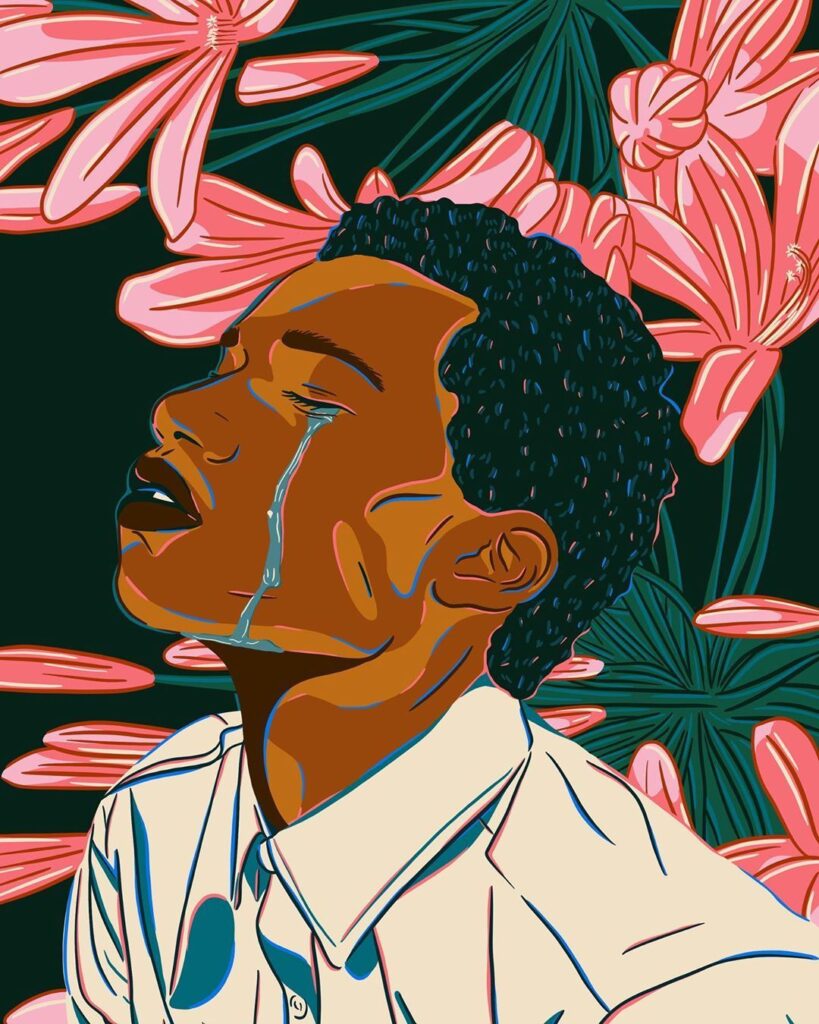We all know the phrase, “If he wanted to, he would,” and if you’ve had a gent who has courted you in any manner, you may have heard this from your friends or even yourself. However, based on the way media trends have been hacking our brains with their undeniable influence on society’s perceptions and expectations, the potential to create positive impacts and social change can sometimes be clouded by harmful stereotypes and unrealistic expectations.
One such expectation that has gained prominence is the idea that young men can and should bear financial responsibility in a relationship. We will explore the pressure placed on young men by media trends and its implications for both genders in heteronormative relationships.

The media’s role in shaping perceptions
Media, including movies, television, advertising, and social media, play a vital role in shaping societal norms and attitudes. Over the years, a recurring theme has emerged: that a successful man should be a sort of provider for his romantic partner. This phenomenon is deep-seated in traditional norms and portrays the often idealised notion that a man should be the primary breadwinner and protector, while his female counterpart plays a more passive role.
Television series, movies, and even advertisements frequently depict scenarios where a man is expected to lavish gifts, pay for extravagant dates, or even buy expensive engagement rings as demonstrations of love and commitment. This constant reinforcement of gender roles can have a profound impact on how young men perceive their obligations in a relationship. This in turn can have a negative view of how a female may be viewed in a relationship and, more often than not, lends itself to her objectification.
Media and gender expectations
The pressure on young men to provide for their girlfriends is not merely confined to fiction. We see this impact weigh even heavier on social media when Instagram and TikTok influencers and celebrities show off their curated online lives, often with luxurious gifts, vacations, and extravagant displays of affection. This creates an unrealistic benchmark for what constitutes a loving and successful relationship.
Such portrayals can lead to feelings of inadequacy and anxiety among young men, who may not have the financial means to meet these exaggerated expectations. This financial instability between partners may create an environment where money can be used as a form of manipulation, as it may feed into another stereotype: that money and power are synonymous. It can also result in toxic masculinity, where men feel compelled to suppress their emotions and vulnerability, further damaging their mental well-being.
The impact on young men

The pressure to provide for a girlfriend can manifest in various ways, impacting young men’s lives both psychologically and financially:
- Financial Stress: Young men may feel compelled to overspend to keep up with perceived societal expectations, leading to financial instability and debt.
- Emotional Toll: The emotional burden of feeling like they must be a constant provider can lead to stress, anxiety, and a sense of inadequacy.
- Relationship Strain: Unrealistic financial expectations can strain relationships, leading to conflicts and misunderstandings between partners.
- Stifled Ambitions: Young men may prioritise their partner’s financial needs over their own career aspirations, potentially hindering personal growth.
- Toxic Masculinity: The pressure to provide may discourage men from seeking emotional support, further reinforcing harmful stereotypes about masculinity.
Media trends have a significant role in shaping societal expectations and perceptions, including those related to gender roles and relationships. The pressure placed on young men to provide for their girlfriends is a concerning trend that can have adverse effects on their mental and financial well-being. It is essential to recognise that successful relationships should be built on mutual respect, equality, and shared responsibilities.
By challenging stereotypes and embracing more balanced and equitable partnerships, young men can navigate relationships with confidence and authenticity. Ultimately, true happiness in relationships comes from genuine connection and shared experiences, not from conforming to unrealistic media ideals.
Connect with me on Instagram @shev.ii_




Such a relevant and important topic you’re covering here Faith! Thanks for touching on this ????